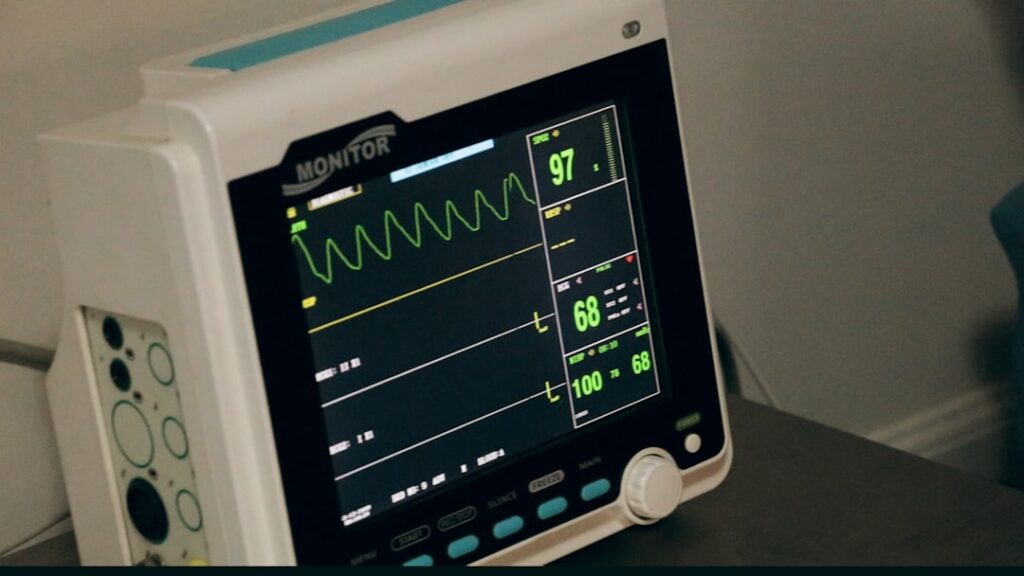Biomedical Engineer Interview Questions: Combine Tech and Healthcare Expertise

Preparing for a biomedical engineer interview requires thorough preparation and knowledge of both technical and industry-specific aspects. Candidates should research the prospective employer, including their products, services, and mission statement. This demonstrates genuine interest and allows for tailored responses that align with the company’s objectives.
Staying informed about recent advancements and trends in biomedical engineering is crucial. Familiarity with relevant healthcare regulations and standards is also important, as it showcases adaptability and commitment to industry best practices. Candidates should be prepared to discuss their technical skills and provide specific examples of projects or experiences that highlight their expertise.
This may include research initiatives, internships, or previous work experience that demonstrate problem-solving abilities and innovation in biomedical engineering. It is advisable to articulate long-term career goals and how they align with the company’s vision. This illustrates not only current qualifications but also a clear trajectory for professional growth within the field of biomedical engineering.
Key Takeaways
- Research the company and industry trends to understand the specific technical skills and knowledge required for the role in a biomedical engineer interview.
- Be prepared to discuss technical projects and experiences that demonstrate your expertise in both technology and healthcare in a biomedical engineer interview.
- Practice answering behavioral questions that showcase your problem-solving abilities and ability to work in a team in a biomedical engineer interview.
- Showcase your technical skills such as proficiency in medical device design, data analysis, and programming languages in a biomedical engineer interview.
- Prepare for coding questions that may test your problem-solving and analytical skills in a biomedical engineer interview.
Technical Interview: Navigating the Tech and Healthcare Expertise
Understanding Healthcare Systems and Regulations
In addition to technical knowledge, it’s crucial to demonstrate your understanding of healthcare systems and regulations. You should be able to navigate the unique challenges of working in the healthcare industry and discuss how you have addressed these challenges in previous roles.
Problem-Solving Skills in Biomedical Engineering
Problem-solving skills are critical in biomedical engineering. Be ready to discuss how you have used your problem-solving skills to address technical challenges, such as troubleshooting issues with medical devices, optimizing processes for healthcare applications, or developing innovative solutions to improve patient care.
Proving Your Abilities
By showcasing your technical expertise and problem-solving abilities, you will prove that you are well-equipped to excel in a biomedical engineering role. This will give you a competitive edge in the interview process and increase your chances of landing the job.
Interview Preparation: Tips for Success in a Biomedical Engineer Interview
Preparing for a biomedical engineer interview requires careful planning and attention to detail. To ensure success, start by thoroughly researching the company and understanding their products, services, and mission. This will not only demonstrate your interest in the company but also help you tailor your answers to align with their goals and values.
Additionally, familiarize yourself with the latest advancements and trends in biomedical engineering, as well as any relevant regulations and standards in the healthcare industry. This will show that you are committed to staying current in the field and can adapt to changes in the industry. Furthermore, practice your technical skills and be prepared to discuss specific projects or experiences that highlight your expertise in biomedical engineering.
This could include research projects, internships, or previous work experience that demonstrate your ability to solve complex problems and innovate in the field. Finally, be ready to discuss your long-term career goals and how they align with the company’s vision. This will show that you are not only qualified for the role but also have a clear direction for your future in biomedical engineering.
Technical Skills: What to Showcase in a Biomedical Engineer Interview
In a biomedical engineer interview, it’s essential to showcase a range of technical skills that are relevant to the field. This could include proficiency in CAD software for designing medical devices, knowledge of programming languages for developing healthcare applications, or experience with imaging systems and biomaterials used in biomedical engineering. Be prepared to discuss specific projects or experiences that highlight your technical skills and demonstrate how you have applied them to solve real-world problems in the field.
Additionally, highlight any certifications or specialized training you have received in biomedical engineering, such as courses in medical device regulations or quality management systems. This will show that you are dedicated to continuous learning and staying current with industry standards. Moreover, be ready to discuss any research or publications you have contributed to in the field of biomedical engineering, as this will further demonstrate your expertise and commitment to advancing the field.
Problem-Solving: Demonstrating Your Ability in a Biomedical Engineer Interview
Problem-solving is a critical skill for biomedical engineers, as they are often tasked with developing innovative solutions to complex challenges in healthcare technology. In an interview, be prepared to discuss specific examples of how you have used problem-solving skills to address technical issues or improve processes in biomedical engineering. This could include troubleshooting problems with medical devices, optimizing workflows for healthcare applications, or developing new technologies to enhance patient care.
Furthermore, be ready to discuss your approach to problem-solving and how you collaborate with others to find solutions. This could include working with cross-functional teams, consulting with healthcare professionals, or conducting user testing to gather feedback on new technologies. By demonstrating your ability to think critically and work collaboratively, you will show that you are well-equipped to excel in a biomedical engineering role.
Coding Interview: What to Expect and How to Prepare
Expectations in a Biomedical Engineering Coding Interview
In a coding interview for a biomedical engineering position, you can expect to be tested on your programming skills and problem-solving abilities. Be prepared to write code on a whiteboard or using a coding platform, and explain your thought process as you work through the problem.
Practice and Preparation are Key
Practice coding exercises related to data analysis, image processing, or medical device software development to ensure you are comfortable with the technical aspects of the interview. This will help you build confidence in your coding abilities and problem-solving skills.
Familiarize Yourself with Relevant Tools and Technologies
Additionally, familiarize yourself with common algorithms and data structures used in biomedical engineering, as well as any specific programming languages or tools that are relevant to the role. This could include languages like Python or MATLAB for data analysis, or software development tools for medical device applications.
Demonstrating Your Coding Proficiency
By demonstrating your coding proficiency and problem-solving abilities, you will prove that you are well-prepared for a career in biomedical engineering.
Behavioral Questions: Mastering the Soft Skills in a Biomedical Engineer Interview
In addition to technical skills, it’s important to master the soft skills required for success in a biomedical engineering role. Be prepared to answer behavioral questions that assess your communication skills, teamwork abilities, and leadership potential. This could include discussing how you have collaborated with others on projects, resolved conflicts in a team setting, or taken on leadership roles in previous experiences.
Moreover, be ready to discuss your ability to adapt to change and work under pressure, as well as your commitment to ethical conduct and professional development. By showcasing your soft skills and demonstrating how they align with the company’s values and culture, you will prove that you are not only qualified for the role but also a good fit for the team and organization. Additionally, be prepared to ask thoughtful questions about the company’s culture, team dynamics, and opportunities for professional growth during the interview process.
This will show that you are engaged and proactive in seeking out opportunities for personal and professional development within the company.
If you’re preparing for a graduate school interview, you may find this article on grad school interview questions helpful. It’s important to be well-prepared for any interview, especially when pursuing a career in a specialized field like biomedical engineering. This article can provide valuable insights and tips to help you succeed in your interview.
FAQs
What is a biomedical engineer?
A biomedical engineer is a professional who applies engineering principles and design concepts to medicine and biology for healthcare purposes.
What are the typical responsibilities of a biomedical engineer?
Biomedical engineers typically design and develop medical devices, equipment, computer systems, and software used in healthcare. They also conduct research to solve clinical problems and improve patient care.
What skills are important for a biomedical engineer to have?
Important skills for a biomedical engineer include a strong understanding of both engineering principles and biological systems, as well as proficiency in computer-aided design (CAD) software and the ability to work in multidisciplinary teams.
What are some common interview questions for a biomedical engineer position?
Common interview questions for a biomedical engineer position may include inquiries about the candidate’s experience with medical device design, knowledge of regulatory requirements, problem-solving abilities, and understanding of healthcare industry trends.
What are some key areas of expertise for a biomedical engineer?
Key areas of expertise for a biomedical engineer include biomaterials, biomechanics, medical imaging, clinical engineering, and rehabilitation engineering. These areas require a combination of technical and healthcare knowledge.


